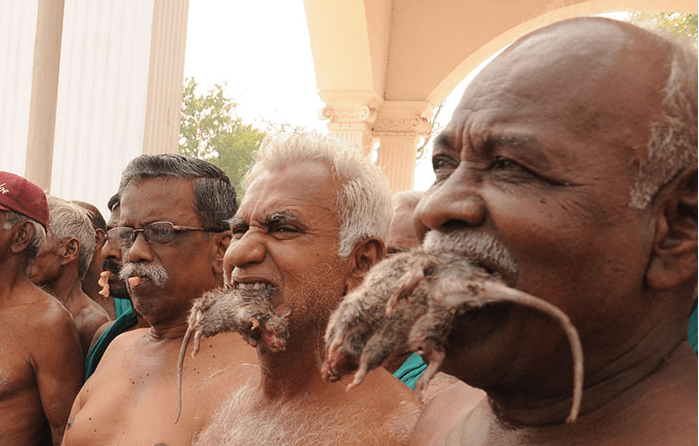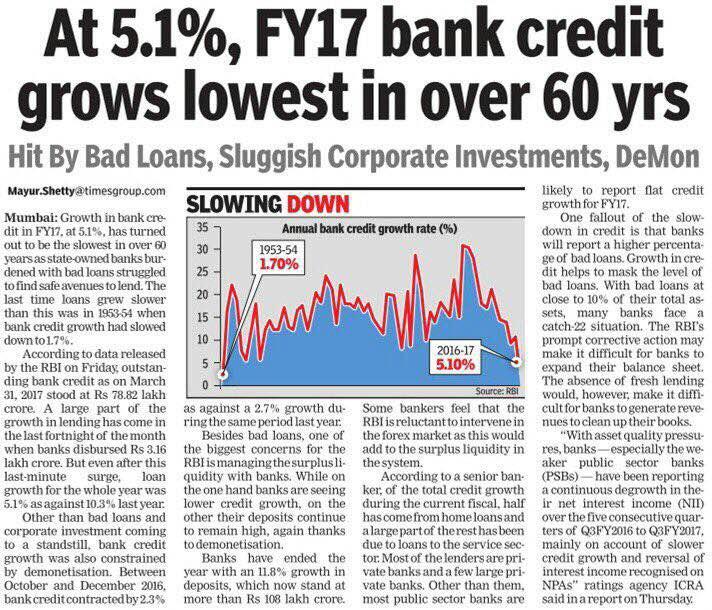Everything Gets Worse (Part XII) – Pakistan vs. India After 70 years of so-called independence, one has to be a professional victim not to look within oneself for the reasons for starvation, unnatural deaths, utter backwardness, drudgery, disease, and misery in India. Intellectual capital accumulated in the West over the last 2,500 years — available for free in real-time via the internet — can be downloaded by a passionate learner. In the age of modern technology, another mostly free gift from the West which has significantly leveled the playing field, societies that wanted economic convergence with the West, such as Japan, Korea, Singapore, HK, China, etc., have either achieved it rapidly, or have strongly trended toward it. More than 28,000 children less than six years of age have died in just one province, Madhya Pradesh, over the past year. Because these deaths were due to diseases resulting from malnourishment, the government attributed every single death to disease rather than malnourishment. Photo credit: Hemender Sharma, India Today - Click to enlarge Given that Indian prime minister Narendra Modi has been at the helm for only three years, it is hard to blame him in general for any of the above mentioned monstrosities marring daily life in India.
Topics:
Jayant Bhandari considers the following as important: Debt and the Fallacies of Paper Money, Featured, newsletter, On Economy, On Politics, Periphery Watch
This could be interesting, too:
Vibhu Vikramaditya writes Navigating the Slippery Slope: How Hoover’s Interventions Paved the Way for the Great Depression
Ryan McMaken writes Frédéric Bastiat Was a Radical Opponent of War and Militarism
Douglas French writes Millennials: In Costco We Trust
Joseph T. Salerno writes What Fed “Independence” Really Means
Everything Gets Worse (Part XII) – Pakistan vs. IndiaAfter 70 years of so-called independence, one has to be a professional victim not to look within oneself for the reasons for starvation, unnatural deaths, utter backwardness, drudgery, disease, and misery in India. Intellectual capital accumulated in the West over the last 2,500 years — available for free in real-time via the internet — can be downloaded by a passionate learner. In the age of modern technology, another mostly free gift from the West which has significantly leveled the playing field, societies that wanted economic convergence with the West, such as Japan, Korea, Singapore, HK, China, etc., have either achieved it rapidly, or have strongly trended toward it. |
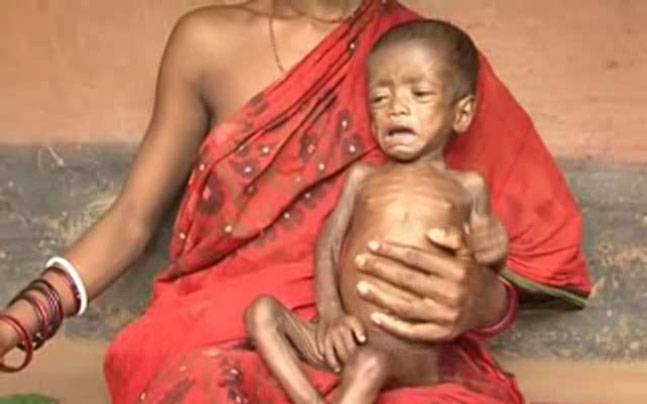 More than 28,000 children less than six years of age have died in just one province, Madhya Pradesh, over the past year. Because these deaths were due to diseases resulting from malnourishment, the government attributed every single death to disease rather than malnourishment. Photo credit: Hemender Sharma, India Today - Click to enlarge |
| Given that Indian prime minister Narendra Modi has been at the helm for only three years, it is hard to blame him in general for any of the above mentioned monstrosities marring daily life in India. The best the head of the executive of an extremely diverse and complicated country can achieve is to nudge the Titanic in the right direction.
The problem is that Modi has actively sped the Titanic toward collision with an iceberg, from which he himself will not emerge unharmed. He must be blamed for his naiveté, his upside-down understanding of economics and a complete lack of awareness of the realities of life, his narcissism and obsession of making a hero out of himself, and an utter lack of self-respect that drives him to seek solace in Hindu fanaticism. He and his party have been a catalyst fanning the flames of nationalism and fanaticism among Indians. |
|
| However, sociopaths exist in every society. If you get rid of one, another one enters the scene. In the end, it is Indians who deserve to be blamed for elevating Modi and his BJP to their positions. In the end, it is Indians who deserve to be blamed for hollowing out and destroying institutions the British left behind over the past 70 years.
In the irrational and tribal society of India, Modi perfectly symbolizes and unconsciously exploits the thinking process of the common man, who tends to deal with problems by doing even more of what created the problems in the first place. A rational person (particularly one whose perception is otherwise skewed by political correctness) faces a huge uphill task and high levels of frustration, when trying to comprehend the actions of irrational people and societies. He won’t be able to understand that the irrationality of some people is so pronounced it can keep them from connecting two simple dots right in front of them. |
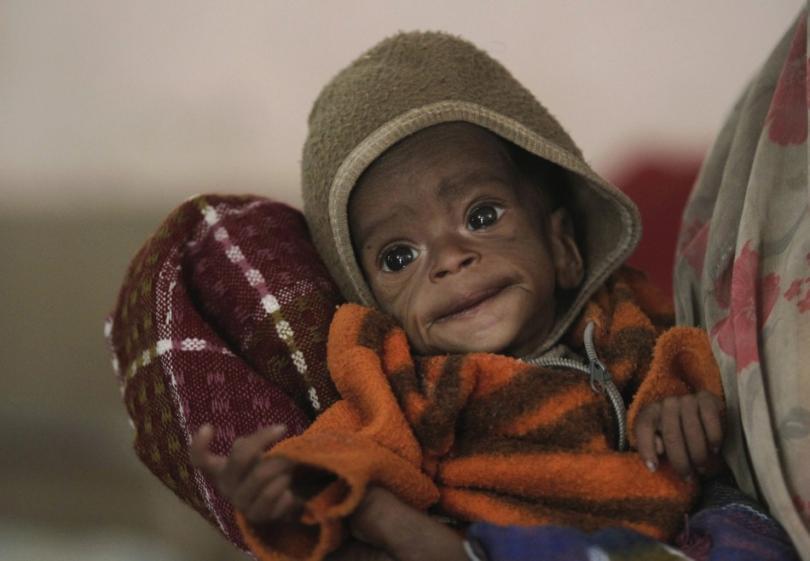 Some 3,000 children die every day from illnesses related to poor diets. Of those who survive, 44% of the children under the age of 5 are stunted. 72% of infants and 52% of married women have anemia. With respect to this India is ranked on the same level as North Korea and Sudan. Photo credit: Reuters - Click to enlarge |
| It is difficult or me to judge whether Pakistan is better or worse off by comparison, but I received many complaints in response to an earlier article in this series (in which I had presumed Pakistan to be somewhat worse off than India), mostly based on tribalism. But let’s try to bring some balance to the issue anyway.
On the World Happiness Report, India is ranked in 122nd position. Pakistan is ranked much higher, in 80th position. Pakistan’s per capita GDP is US$1,550, India’s is US$1,719. The difference is very small. Moreover, Pakistan has to spend a fortune to cater to refugees, to defend itself against problems from Afghanistan, as well as a much bigger foe, namely India. Pakistan also suffers from instability spilling over from Afghanistan and Iran. As a result Pakistan is spending a much higher proportion of its government revenue on the military than India. If the external conditions of the two countries were similar, Pakistan would presumably be richer than India. I also received several introspective messages from Pakistanis, who averred that Pakistan was descending into chaos, and similar statements were made by Indians as well. Most Pakistanis asked me to keep their names confidential, as speaking out against the Pakistani army or Islam could easily lead to unwelcome consequences such as beheading. A small minority in India is less concerned about speaking out, but this is changing quite rapidly. |
A silly, well-orchestrated routine that is conducted every day at Indo-Pak border. Ironically, both Indian and Pakistani forces work and practice this routine together, to keep it well-synchronized. The bravado and bravery is all superficial theater. |
Demonetization Pain Continues UnabatedWhen Narendra Modi announced on 8th November 2016 that he was demonetizing 86% of the monetary value of all currency in circulation, he gave three major reasons for doing so: to end corruption, to end terrorism and to eliminate counterfeit currency. Ironically, all three are now in far worse condition than they were previously, and even worse than the predictions I made in this series of essays (Part XI is linked here). Many ATMs in India still dispense no cash. The economy is in shatters. This had to happen, as any new cash is rapidly moving under the carpets of the financial powerful that hoard currency. Small businesses are traumatized by the lack of access to cash – many are closing for good. People continue to avoid making non-essential purchases. Even food demand has failed to recover. Poor people very likely are still forced to go to bed half-hungry. No-one knows whether there are famines in parts of India, as none of the mainstream media are covering the issue. Not unlike North Koreans or the Chinese during the times of Mao, Indians today, particularly members of the so-called educated class, simply cannot see what Modi or their nationalistic paradigm does not want them to see. Indian banks and other financial institutions are extremely unethical. Since privatization was implemented in the 1990s, they have charged fees and commissions for accounts that were never agreed upon. Indians never fight, so this continues. After the demonetization exercise, these mysterious charges have started to appear more often. Then they deduct certain services and financial taxes, and most people don’t make the effort to try to understand them. Indians are getting very tired of the banks – not for moral, but simply for financial reasons. Bank websites are extremely unwieldy. They require a sequence of passwords and OTPs (one time pad codes), which have an automatic expiry date. Getting the whole sequence right to make an online payment without having these websites freeze during the procedure leaves one with a sense of accomplishment. Most people prefer to walk down to their banks to get bank officials to perform such online transactions. India is simply not ready for the digital age. This experiment in going cashless will end in a disaster. |
|
| Similar to every tyrant, Modi likes to think that tax collection should be at the heart of society. He imagines a society in which subjects dance around the state. The problem is, one can perfect the tax system or minimize corruption, but with a per capita GDP of $1,718, India simply does not have the required productivity.
Bank charges, rapacious tax authorities and massive amounts of time lost in dealing with the lack of cash have hurt whatever little productivity the Indian economy may have had. And by forcing digitalization, Modi has merely shifted liquidity from the informal to the formal sector. Even in the western world, most big corporations are in bed with governments. In India, romping in bed with the State is all they ever do. For the moment, these corporations are huge beneficiaries of shift of resources to the banking system. But without the spine that is the informal sector, the formal sector cannot benefit for very long. Eventually even the formal economy will succumb and take a massive hit. Corruption is bigger today, with most people complaining that they have to pay almost twice as much as usual in bribes, as bureaucrats and politicians try to make up for any real or assumed loses they faced as a result of the demonetization process. Counterfeiting of banknotes is a bigger problem today than it likely ever was. |
An African student in India being thrashed merely for being African. Racism against Africans is rampant in India, and the hostility is growing. |
Kashmir – Where India’s Disintegration Is Set to BeginThe last professed reason for Modi’s demonetization decree was to end terrorism and to solve the problems in Kashmir. The situation in Kashmir has deteriorated rapidly, while the law and order situation is generally worsening around the country, as vigilantes are given free reign. |
Sacred cow enforcement squad: Cow vigilantes have become a regular feature of the Indian landscape, with Muslims and lower-caste people being killed and thrashed on a regular basis (one of the five men beaten up in this video later died). The Muslim community is increasingly isolated. This cannot end well in a country with the world’s second biggest Muslim population. |
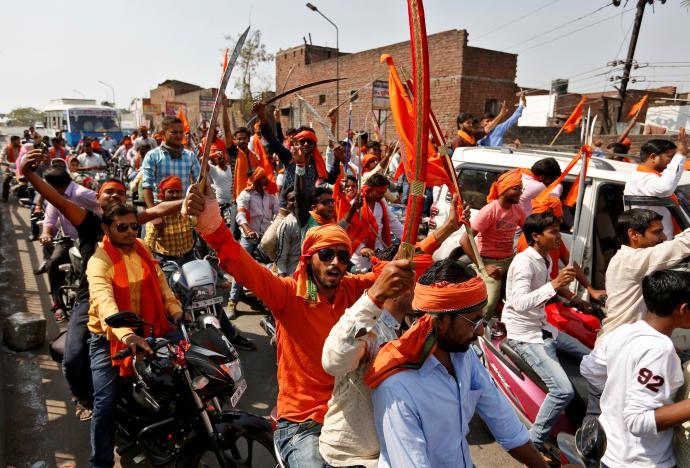 Hindu Yuva Vahini, a group of fanatics, founded by none other than the current Chief Minister of Uttar Pradesh, Yogi Adityanath, roaming freely, with swords drawn (UP is India’s most populous state with nearly 200 million inhabitants). Once the genie of lawlessness is out of the bottle in this irrational society, it will be centuries before it can be put back in again. This is a disaster waiting to happen. Photo credit: Reuters - Click to enlarge |
|
| Immediately after his appointment, Yogi Adityanath created “Anti-Romeo” squads, whose job is to harass any couples deemed to be unmarried. In spite of the fact that the police has no such constitutional authority, the courts have been silent spectators. Vigilante Hindu fanatics have even dragged couples from private properties to the police station. Instead of police charging these fanatics, they end up interrogating the couples dragged to the station. As I have said repeatedly, only hollowed out structures remain of the institutions the British left behind. | |
|
There has been an unprecedented increase in human rights violations by the Indian army in recent days in Kashmir |
|
|
Another short video showing the Indian army in action in Kashmir |
|
| One must reflect on what it means if the country’s Attorney General has no clue what the rule of the law actually means. Voting was almost non-existent in recent elections. The army is stressed out and desperate. Those not in Kashmir and with no skin in the game happily pass judgment from their couches.
There is no political mechanism in place for Kashmir to secede. Secession through violence – which looks increasingly inevitable, particularly in view of Modi’s heavy-handedness – will be extremely chaotic. Its reverberations will be heard across the world, and might start the fragmentation of India as a political entity. Jayant Bhandari grew up in India. He advises institutional investors on investing in the junior mining industry. He |
The Indian army recently used a man as a human shield in Kashmir. Not only celebrities and journalists voiced their approval, India’s Attorney General, one of the main guardians of the law, justified it by saying: “peculiar situations require peculiar measures”. |
Tags: Featured,newsletter,On Economy,On Politics,Periphery Watch

